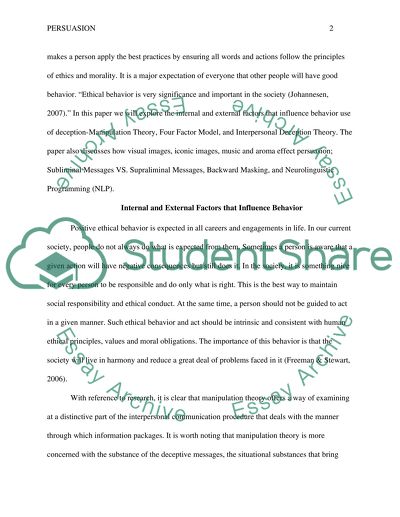Cite this document
(“Persuasion Research Paper Example | Topics and Well Written Essays - 2500 words”, n.d.)
Retrieved from https://studentshare.org/journalism-communication/1477117-persuasion
Retrieved from https://studentshare.org/journalism-communication/1477117-persuasion
(Persuasion Research Paper Example | Topics and Well Written Essays - 2500 Words)
https://studentshare.org/journalism-communication/1477117-persuasion.
https://studentshare.org/journalism-communication/1477117-persuasion.
“Persuasion Research Paper Example | Topics and Well Written Essays - 2500 Words”, n.d. https://studentshare.org/journalism-communication/1477117-persuasion.


